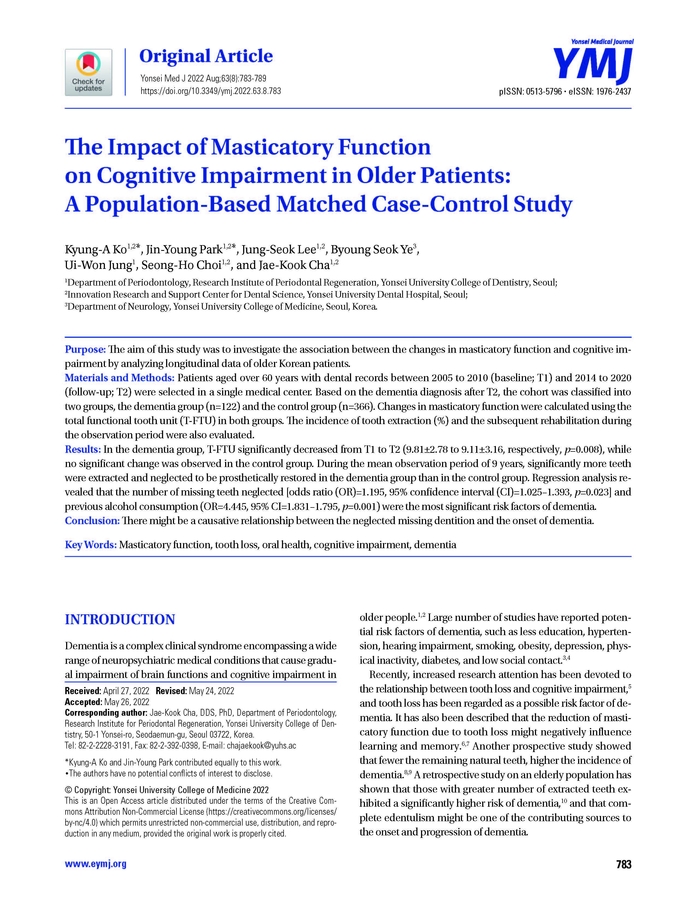Professor Cha Jae-guk of Yonsei University “If you are an elderly person, you should maintain your chewing ability with implant and prosthetic treatment after tooth extraction”
Correlation between tooth loss and dementia
– 
–
Poor chewing of food in older patients increases the risk of dementia, according to a new study.

–
A research team led by Professors Cha Jae-guk, Park Jin-young, and Ko Kyung-ah from the Department of Periodontal Sciences at Yonsei University School of Dentistry announced on the 30th that the risk of dementia increases if elderly patients of the same age or over 60 years old people lose their chewing ability because they do not take dental restorative measures such as implants after tooth extraction.
It is known that when the chewing ability to chew food decreases, the brain’s learning ability and memory capacity can decrease. This is because food cannot be broken down into small pieces, so nutrients cannot be absorbed well in the body, and food that enters the gums can rot and cause chronic periodontitis, which can damage the central nervous system. However, a correlation between tooth loss and dementia has not been established.

–
The research team studied the correlation between tooth loss and dementia in 488 patients (122 in the dementia group, 366 in the control group) who had been treated at Yonsei University Dental College Hospital between 2014 and 2020. I 488 respondents were patients who visited the hospital for the first time between 2005 and 2010 and then returned to the hospital.
To compare and evaluate the chewing ability of the two test groups, the number of missing teeth and the rate of restorative measures were studied. Consequently, the mean number of teeth decreased in the dementia group was 6.25, more than in the control group (4.53).
The rate of leaving the empty tooth area without restoration after tooth extraction was also higher in the dementia group. The dropout rate of missing teeth in the dementia group was 56.48%, but in the control group it was 42.6%. In the control group that did not develop dementia, when teeth were lost due to tooth extraction, etc., 77.48% of cases preserved chewing ability by filling the void with implant or prosthetic treatment, which was higher than in the dementia group (66.56%).

–
Professor Cha Jae-guk said: “It is easy to lose your teeth due to natural tooth loss and extraction as you age, but if left as it is, you will not be able to chew food well”, said Professor Cha Jae-guk. chewing ability with treatment is important in preventing dementia, “he said.
The results of this study were published in the latest issue of the Yonsei Medical Journal (YMJ), a comprehensive medical journal published by Yonsei University College of Medicine.
–


